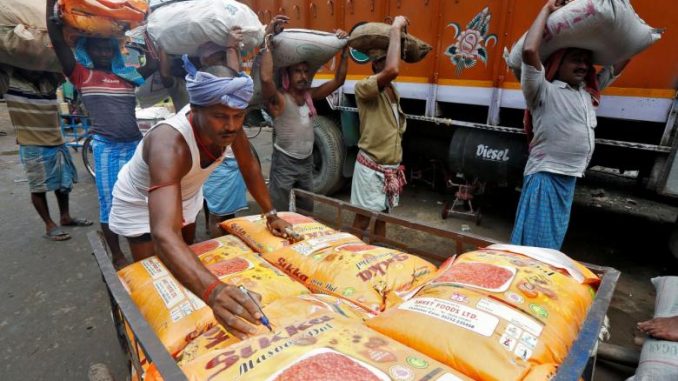
Our unemployment numbers and still high levels of poverty give India a strong ground for an alternative redistributive solution
Exponential technological innovations have made it possible for us to envision a future with abundant resources. Unfortunately, the rapid adoption of disruptive technologies such as Artificial Intelligence, 3D printing and robotics has cut down our human capital needs. The trends in the cradle of global technological innovations, the Silicon Valley, could be seen as an ominous harbinger of our future, with the small concentrated area housing five of the eight most valuable companies in the world, with a cumulative market cap of almost $ 3 trillion; but with the tech-titans employing just under 700,000 between them, indicating the distressing trajectory of our workforce requirements.
Although we haven’t been able to yet create a redistributive system befitting this age of limited job opportunities and copious resources, the most spoken about solution to date is the introduction of a Universal Basic Income (UBI), a regular and fixed amount for the underprivileged from the State. Advocated by several tech-pioneers including Elon Musk and Mark Zuckerberg, UBI is seen as the fairest way to distribute the fruits of modern age technological advancement; with the eradication of poverty, and the explosion of creativity and entrepreneurship seen as potential by-products.
While the concept of a basic income has been spoken of from the middle of the 19th century, with countries like the US and Canada later experimenting with a negative income tax in the 1960s and 70s, the idea started gaining swift traction from 2016, with several countries including Kenya, Brazil, Finland, Netherlands, and Scotland starting small-scale experiments in basic income, as a means to offset dwindling job openings because of automation and robotisation. A European Union-wide opinion poll conducted in 2016 showed that almost 65% would vote in favour of the idea, if given a choice.
Back in 2010, India had a trial where unconditional monthly cash transfers between Rs 100 and Rs 300 were provided to over 6,000 individuals residing across eight villages in Madhya Pradesh. Unsurprisingly, the beneficiaries showed substantial improvements in their food sufficiency, and wellness levels. Our 2016-2017 Economic Survey had proposed a restricted UBI of Rs 7,620 /year, with poverty and hunger alleviation the stated objective. It would, however, cost at least 5% of our GDP.
Besides high costs, the execution of this concept on a national scale anywhere would face a myriad challenges, including the need to overhaul the existing social security and welfare systems; and the creation of unpredictable changes in the labour market.
Nonetheless, our growing unemployment numbers, our lamentable Global Hunger Index rankings, and still high levels of poverty, remain blights in a 21st century India; and give us strong grounds to keep an eye out for an alternative redistributive solution befitting our times.
Anil K Antony is the Executive Director of Cyber India, and Vice President of Navoothan Foundation. The views expressed are personal
Source: Hindustan Times

Leave a Reply